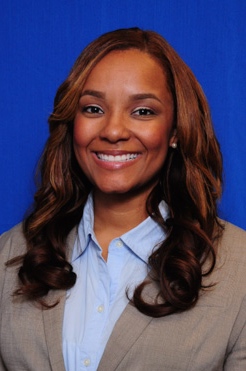
174. Cardio-Obstetrics: Black Maternal Health with Dr. Rachel Bond
Cardionerds: A Cardiology Podcast
Do Black Women Suffer From Infertility?
Black women are two times more likely than their caucasian counterparts to suffer from infertility. A common reason has a lot to do with the fact that they're more disproportionately likely to have fibroids. Having a higher education and having a higher income, it does not protect you when it comes to maternal health.
CardioNerds (Amit Goyal), Dr. Natalie Stokes (Cardiology Fellow at UPMC and Co-Chair of the Cardionerds Cardio-Ob series), fellow lead Dr. Victoria Thomas (Cardionerds Ambassador, Vanderbilt University Medical Center), join Dr. Rachel Bond (Women’s Heart Health Systems Director at Dignity Health, Arizona) for a cardio-obstetrics discussion about Black maternal health. Episode introduction by CardioNerds Clinical Trialist Dr. Chistabel Nyange. Audio editing by CardioNerds Academy Intern, Christian Faaborg-Andersen.
This episode was developed in collaboration with the Association of Black Cardiologists. ABC is a 501(c)3 nonprofit organization whose mission is to promote the prevention and treatment of cardiovascular disease, including stroke, in Black persons and other minority populations, and to achieve health equity for all through the elimination of disparities. Learn more at https://abcardio.org/.
Notes • References • Guest Profiles • Production Team

Show notes
1. Why does Black Maternal Health need to be deliberately highlighted episode on CardioNerds?
- Black women are three-four times more likely to die during their pregnancy. The deaths are primarily tied to cardiomyopathy and cardiovascular conditions such as coronary artery disease, pulmonary hypertension, chronic hypertension, preeclampsia, and eclampsia.
- 63-68% of this cardiovascular mortality is preventable depending on one’s racial identity. As CardioNerds, we must educate ourselves on why this occurs and identifying diseases that may place patients at increased risk.
- Studies have shown the Black maternal mortality crisis exist irrespective of one’s education or socioeconomic status.
- We must recognize and admit that some patients are being treated differently because of their race and ethnicity alone.
2. When we consider or acknowledge a patient’s race, what should CardioNerds think about?
- Race is an important factor to think about, but we must remember that it is an imperfect variable. We should not focus on biology or genetic make-up. We should think about social determinants of health. 60% of the time social and personal aspects dictate one’s health.
- Unconscious biases and structural racism are likely playing a major role in race-based health inequities.
3. What are other vulnerable groups that have increased mortality rates related to cardioobstetric care?
- Native American women have similar maternal mortality rates to Black populations.
- Women who are veterans, live in rural communities, and/or are currently incarcerated have increased risk of mortality
4. What are some of the social determinants of health that should be considered for these patients?
- Food deserts or having poor access to nutrient rich/quality foods make these vulnerable patients have increased risk factors for high cholesterol, high blood pressure, obesity, and diabetes which increase the risk for pregnancy complications and infertility.
- The above vulnerable populations can have less access to higher levels of care for high-risk pregnancies.
5. What are some of the preventable causes of maternal mortality?
- Clinicians should actively listen to their patients’ concerns. There have been several media stories in the news and on CardioNerds episodes where women’s concerns were not acknowledged or taken seriously.
- Preconception counseling is important to provide to all patients. 50% of women have one risk factor for cardiovascular disease when entering pregnancy. We should have discussions with patients regarding their lifestyles, with an emphasis on exercise and diet.
6. What are some of the psychosocial or health related differences we see in black mothers when compared to other races?
- The effect of stress is affecting not just black mothers but black women in general by predisposing them to increased cardiovascular disease and cognitive impairment. The stress effects on black women are being called superwoman schema.
- Superwoman schema is a combination/phenomenon of gender and racial oppression’s effect on the allostatic load (cumulative biological stress). Studies have shown that black women’s chronic stress levels affect their sympathetic nervous system with an inability to fight off or perhaps produce too much inflammatory response. This increases the risk of a variety worsening chronic morbidities in particular worsening cardiovascular health.
- One in eight women will struggle with infertility. Black women are two times more likely to suffer from infertility compared to their White counterparts. This is largely due to increased uterine fibroids. Black women are also less likely to be referred to a reproductive endocrinology specialist.
7. What pre-counseling assessments or work-up should be considered for women trying to conceive?
- Consider getting a baseline ECG as that would give a nice idea of structurally of what is going on within the heart. If there are several risk factors, there can be consideration for a baseline echocardiogram.
- There should be a specific focus on lifestyle. As cardiologists, we should try to have our patients monitor their weight and follow a well-balanced diet with exercise. They should monitor their blood pressure.
- Also try to have a birthing plan with OBGYN team as there is data to support that a birthing plan can lead to better outcomes for high-risk pregnancy.
8. What are some of the tools that have been recently used to help reduce black maternal mortality?
- Patients that are likely to have higher pregnancy complications should be considered to follow not only with a maternal fetal medicine doctor, but there should be consideration for extra help with a doula or a midwife if possible.
- We should promote home blood pressure monitoring during pregnancy and post-partum as there have been trials supporting the fact that blood pressure control was more successful using texting/ambulatory monitoring strategies vs office visits alone.
- Digital platforms such as MAHMEE are closing gaps in care to connect patients in their pregnancy and postpartum care to help with all patients but especially underserved populations.
References
8. Pregnancy mortality surveillance system. Centers for Disease Control and Prevention. https://www.cdc.gov/reproductivehealth/maternal-mortality/pregnancy-mortality-surveillance-system.htm. Published November 25, 2020. Accessed December 18, 2021.
Guest Profiles

Rachel M Bond, MD, FACC, Women’s Heart Health & Prevention Specialist is devoted to expert diagnosis and treatment for improved patient outcomes. Her expertise is in cardiovascular disease with special interest in women’s heart health, prevention, lipid disorders, pregnancy-related heart disease, cardio-oncology and autoimmune-related heart disease.Dr. Bond is a board-certified attending cardiologist and the System Director of the Women’s Heart Health Program at Dignity Health in Arizona. She is affiliated with Chandler Regional Medical Center & Mercy Gilbert Medical Center. She is board certificated in cardiovascular disease, internal medicine, echocardiography and nuclear cardiology and is a registered physician in vascular interpretation. Dr. Bond is a well-known spokesperson for the American Heart Association, Go Red for Women Campaign.

Dr. Victoria Thomas @Drvic_thomas is a cardiology fellow at Vanderbilt University. She completed medical school at University of Chicago-Pritzker School of Medicine followed by residency training at Indiana University. Victoria is fervent about medical and patient education along with promoting health equity and decreasing health disparities. She is currently deciding between a Master of Education or Science in Clinical Investigation. Her research interest are curriculum development, cardiac ATTR, and coronary artery disease.



